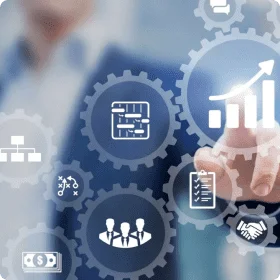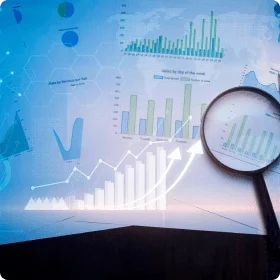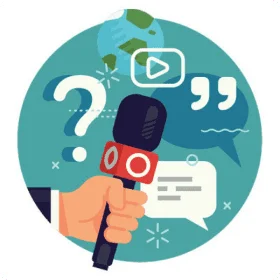The Future of AI: How It Will Transform Daily Life in 10 Years
AI will revolutionize healthcare, education, cities, entertainment, and more, making our lives more efficient, personalized, and connected.
Introduction
Artificial Intelligence (AI) is no longer a futuristic concept—it is rapidly shaping the present and has the potential to revolutionize how we live, work, and interact. In the next decade, AI is set to fundamentally change our daily lives in ways we never imagined. From smarter homes to AI-driven healthcare, let’s explore how this transformative technology will impact various aspects of our routine existence
AI-Powered Smart Homes: The Future of Living
In 10 years, AI-powered smart homes will be commonplace, offering an unparalleled level of convenience and efficiency. Devices will not just follow commands; they will anticipate our needs. AI assistants will learn our preferences—adjusting lighting, temperature, and even music based on time of day and mood. For example, your home might automatically dim the lights and play calming music when you’re winding down after a long day, or prepare a hot cup of coffee as soon as you wake up.
Moreover, AI systems will integrate seamlessly with household appliances. Your refrigerator could alert you when groceries are running low or suggest recipes based on available ingredients. AI-powered security systems will recognize faces and behaviors, providing real-time alerts about suspicious activities, ensuring your home is always secure.
AI in Healthcare: Personalized Medicine at Your Fingertips
One of the most significant advancements we can expect from AI in the coming decade is the transformation of healthcare. AI will enable highly personalized medicine, where treatments are tailored specifically to an individual’s genetic makeup, lifestyle, and environment. Machine learning algorithms will analyze vast amounts of data, predicting health risks and recommending preventive measures even before symptoms arise.
AI-driven health monitoring tools, like wearables, will track everything from sleep patterns to heart rates, alerting you and your doctor to any concerning changes. By 2034, AI could potentially detect diseases like cancer or Alzheimer’s in their earliest stages, allowing for timely intervention and improved treatment outcomes.
Autonomous Vehicles: The Road to a Driverless Future
The dream of autonomous vehicles is fast becoming a reality. In 10 years, we could see fully self-driving cars dominating the roads. These AI-powered vehicles will not only make transportation more efficient but also drastically reduce accidents caused by human error. With AI systems managing traffic flow, roads will become safer, and commute times will be optimized.
For people with disabilities or the elderly, autonomous vehicles will be a game-changer. AI will provide them with newfound independence, enabling them to travel freely without relying on others. Public transportation could also see a complete overhaul with autonomous buses, shuttles, and trains making daily commuting more accessible and efficient.
AI in Workplaces: Revolutionizing How We Work
AI is already making waves in the workplace, but in the next decade, it will completely transform industries and job functions. Automation will take over repetitive tasks, freeing up employees to focus on more creative and strategic roles. For instance, AI-powered tools can streamline data analysis, customer service, and even legal research.
In addition, AI will personalize employee development. Intelligent systems will identify skill gaps and recommend personalized learning resources. With AI handling routine tasks, workplaces will be more productive, creative, and collaborative. For businesses, AI will offer deeper insights into market trends and consumer behaviors, enabling smarter decision-making.
AI in Education: Transforming Learning and Personalization
AI will reshape the education sector by providing more personalized learning experiences. Adaptive learning platforms will use AI to tailor educational content to each student’s pace and learning style, ensuring they grasp concepts effectively. Whether it’s a student struggling with math or one excelling in science, AI will create dynamic curriculums that adjust in real-time to the needs of the learner.
Furthermore, AI will break down barriers to education. Virtual tutors, powered by natural language processing and machine learning, will offer 24/7 assistance, making learning more accessible to students across the globe. In remote or underserved areas, AI tools could fill gaps in teaching, providing high-quality education where human resources are scarce.
AI in Retail: Shopping Smarter
AI will revolutionize the shopping experience, both online and offline. In the next decade, AI will power more intuitive shopping assistants that understand your preferences and can suggest items you are likely to love. With AI-driven virtual try-ons, you can test out clothes or makeup products using augmented reality (AR) without ever stepping into a store.
AI will also streamline inventory management. Retailers will use AI to predict trends, optimize stock levels, and ensure faster delivery times. Personalized promotions will become the norm, with AI tailoring discounts and special offers based on past purchases, preferences, and even browsing history.
AI in Entertainment: A New Era of Content Creation
The entertainment industry will undergo a massive shift with AI creating new forms of interactive and personalized content. In 10 years, AI could be crafting music, movies, and TV shows tailored specifically to individual tastes. Imagine watching a film where the plot and characters evolve based on your preferences in real time.
Gaming will also see a revolution. AI-powered non-playable characters (NPCs) will become more intelligent, creating more immersive and dynamic game worlds. Virtual reality (VR) and augmented reality (AR) will blend with AI to create hyper-realistic experiences, whether for gaming, concerts, or virtual tourism.
AI and the Environment: Sustainable Solutions
As concerns over climate change intensify, AI will play a crucial role in developing sustainable solutions. From optimizing energy consumption in buildings to reducing waste in manufacturing, AI will drive efforts to create greener, more sustainable environments. Smart grids, powered by AI, will make energy distribution more efficient, reducing power loss and lowering costs.
AI will also assist in monitoring and protecting biodiversity, analyzing ecosystems, and predicting natural disasters. By analyzing environmental data, AI can suggest proactive solutions to mitigate climate change and preserve natural resources for future generations.
Conclusion: A Smarter, More Connected Future
In 10 years, AI will be woven into the fabric of our everyday lives, transforming everything from the way we live in our homes to how we interact with the world around us. While AI presents incredible opportunities for improving convenience, health, and sustainability, it also brings challenges related to privacy, ethics, and job displacement. Nonetheless, the future of AI promises a more connected, efficient, and personalized world where technology works alongside humanity to enhance quality of life.
As we move toward this future, it’s essential to stay informed, adapt to technological changes, and embrace AI in ways that enhance both our personal and collective experiences. The future of AI is bright—get ready for a smarter, more efficient world!
Visit BRB Group for insights and resources to help build your knowledge and develop the skills necessary for thriving in today’s digital landscape.







